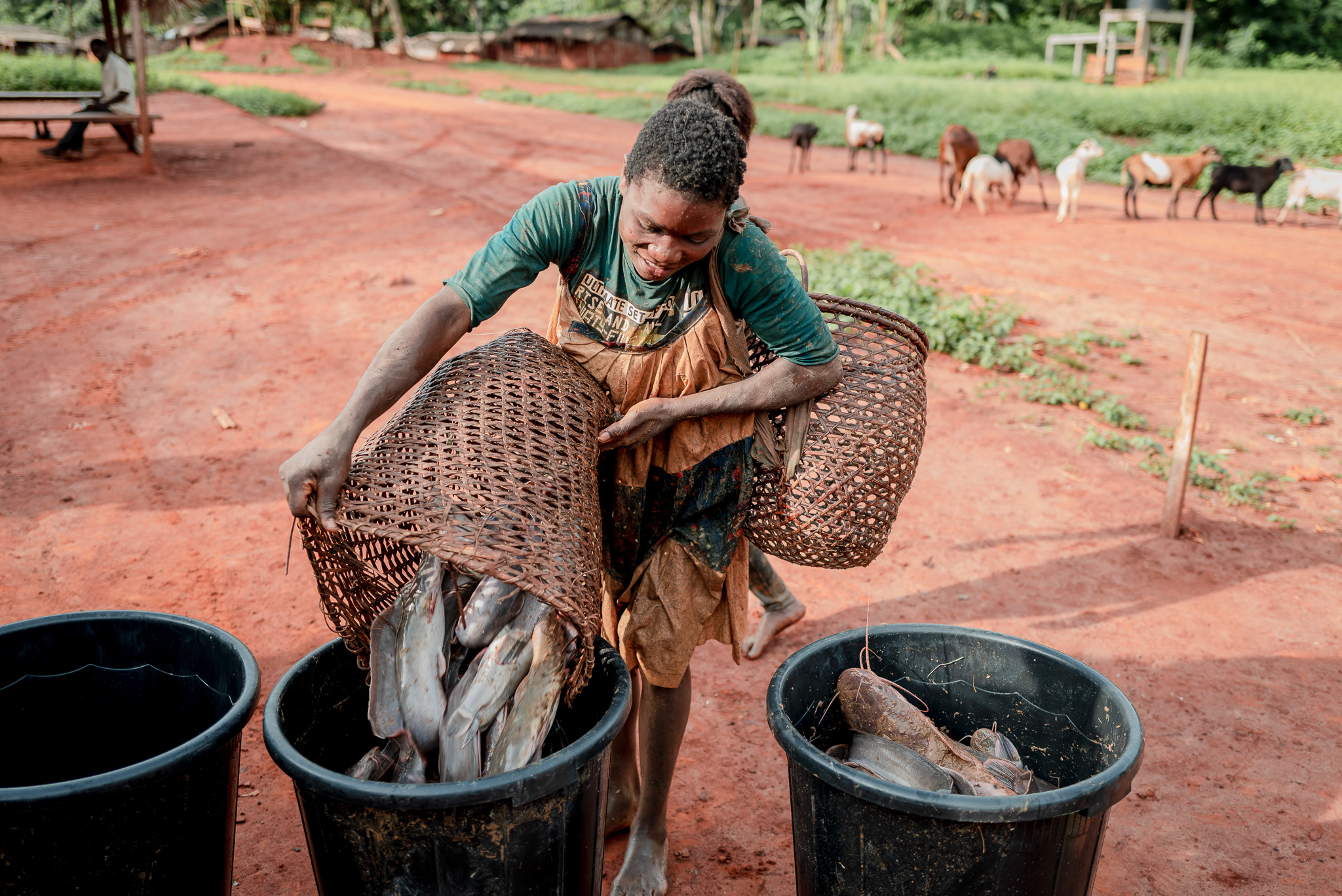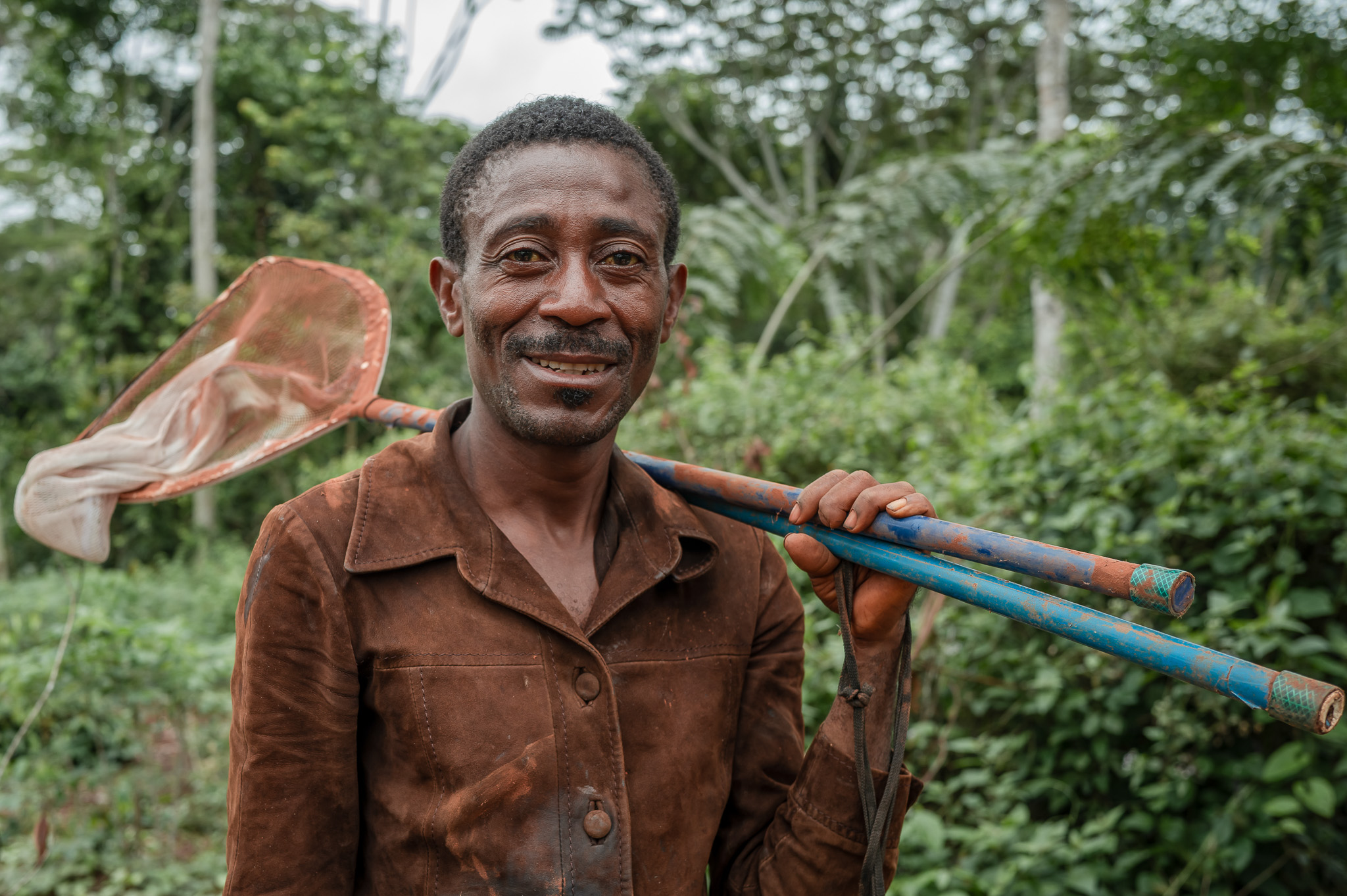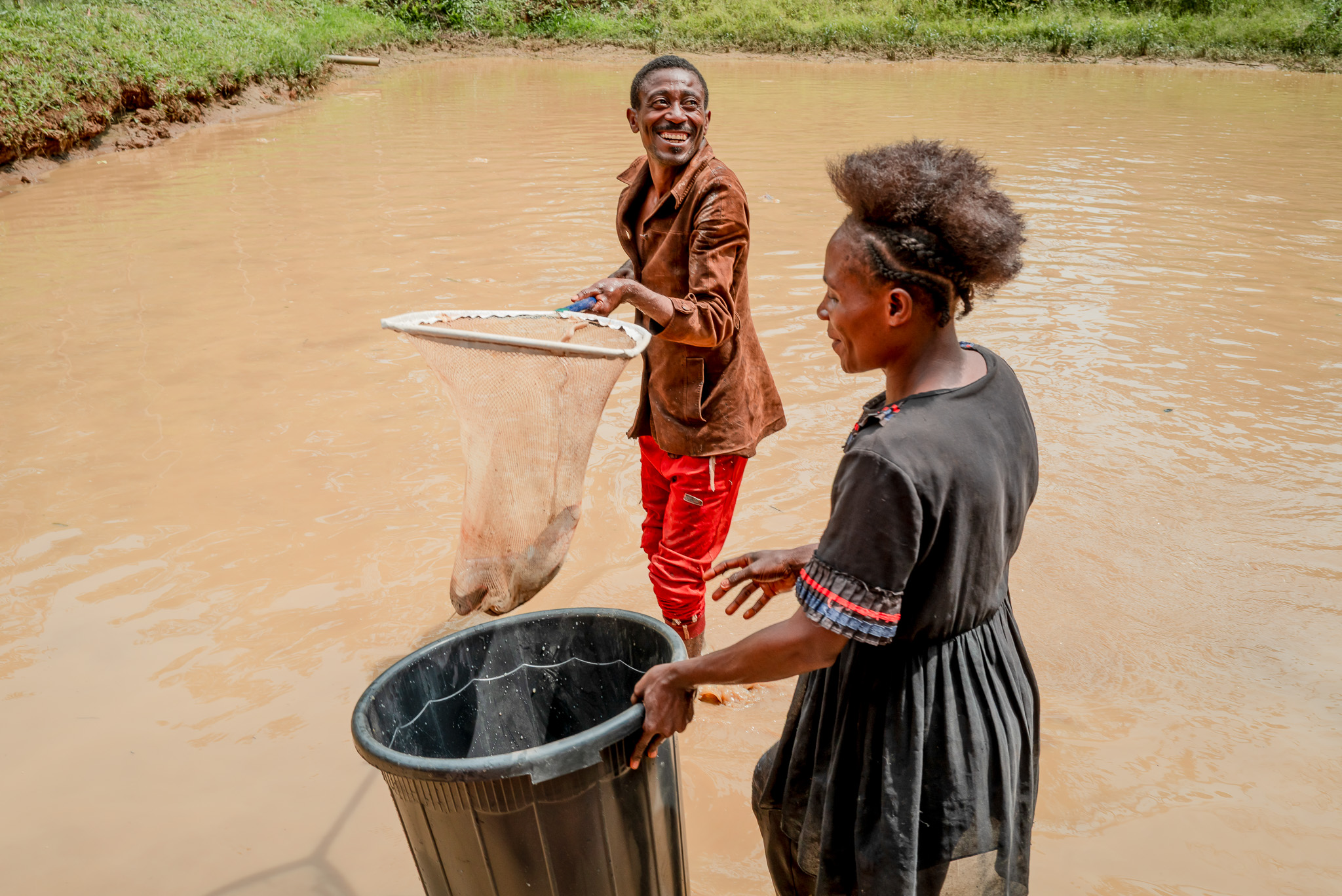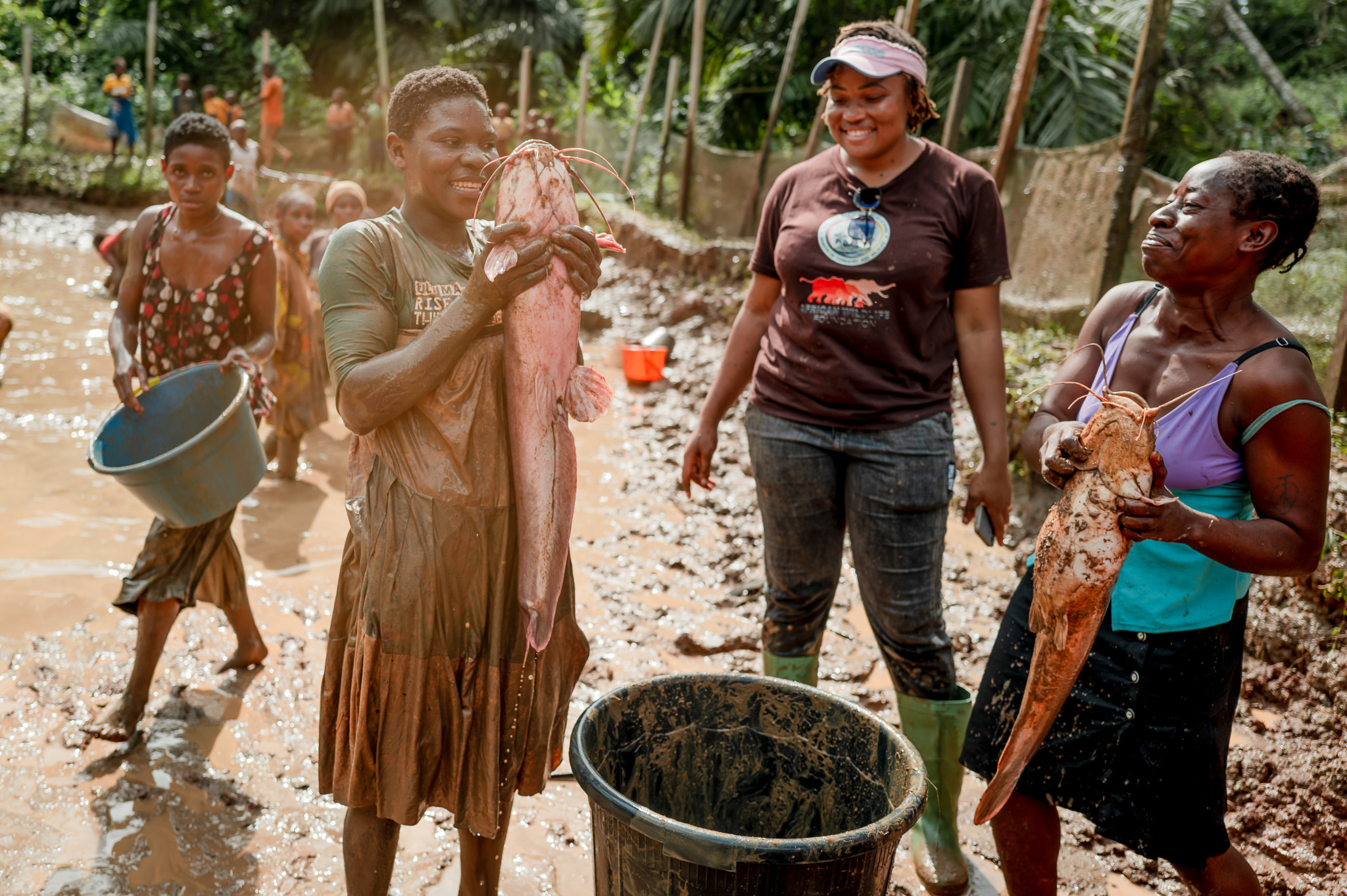"We’re Raising Hope": How Fish Farming is Changing Lives in the Congo Basin

INDIGENOUS WOMAN TRANSPORTS FISH HARVESTED FROM THE POND PREPARING TO SELL
In Cameroon, in the heart of the Congo Basin, where the canopy of the Dja Biosphere Reserve stretches across the horizon, lies the small village of Bifolone. For generations, the Baka indigenous people have called this forest home. It has offered food, medicine, shelter, and a deep sense of identity.
But in recent years, this balance has been tested. Forest resources have dwindled due to illegal logging, climate change, and rising human pressure. Traditional sources of food became harder to find. As a result, some families began turning to bushmeat hunting—not out of choice, but necessity. While it offered temporary relief, it also put wildlife and the forest ecosystem at risk.
In 2023, something changed. With support from the European Union’s Natura Sud-Est and NaturAfrica initiatives, a fish farming project was launched in Bifolone, bringing with it training, tools, and over 3,500 fish fingerlings. The goal was ambitious but clear: reduce reliance on bushmeat, improve nutrition, and build sustainable livelihoods for the community.
From the Forest to the Fish Pond
The early days of the project were filled with uncertainty. Many villagers, unfamiliar with aquaculture, were unsure if fish farming could work in their environment. But curiosity turned into commitment. As training sessions progressed, local men and women began to learn the science of building ponds, feeding schedules, and water management.

SAPOUAM REMY ON HIS WAY TO CLEAN THE FISH POND IN BIFOLONE COMMUNITY
Among them was Remy, a young father who had spent much of his life relying on the forest. Like many others, he had grown up hunting, knowing no other way to provide for his family. But as wildlife became scarcer, even that path seemed to be closing. The fish farming project offered a different kind of opportunity, one that didn’t take from the forest, but added to the community.
Over time, Remy became one of the most engaged participants. He learned quickly, not just how to raise fish, but how to teach others.
“At first, I was scared that I would never be able to grow fish. Thanks to AWF team, I have learnt fish farming at the back of my home. Fish farming has become more than a livelihood—it has become a way to rebuild dignity and self-reliance". Remy explained, his voice thick with self satisfaction.
Nourishment and Peace of Mind
In Bifolone, women bear the brunt of food insecurity. For Mano’o Doline, a mother of three, daily life had long been a series of difficult choices- how to stretch a meal, which child to feed more, how to manage when there wasn’t enough.

MANNA DOLINE AND SAPOUAM REMY HARVESTING FISH FROM THE POND IN BIFOLONE VILLAGE
When the first fish harvest arrived, it brought more than protein. It brought a sense of relief. Doline prepared a generous meal for her family, and for the first time in a long while, she watched her children eat without worry.
The meal didn’t erase years of hardship, nor did it cure their health struggles, but it marked a turning point. With proceeds from fish sales, the community was able to purchase grains and other staples. Some households, like Doline’s, planted what they received,securing future harvests and building resilience.
“This fish farming project did not just introduce food. It gave me the opportunity to plan ahead. That’s something that had long been out of reach for families like mine in Bifolone village” Doline explained smiling.
A Model for Sustainable Conservation
As fish farming takes root in Bifolone, its ripple effects are becoming clear. Households now have access to more reliable food sources and opportunities to earn income. Parents are investing in seeds, school supplies, and even tools to support other agricultural activities.
At the same time, reports of bushmeat hunting in the area are declining. The forest, once overburdened, is getting some room to breathe. This is the heart of community-led conservation, providing people with sustainable alternatives that protect both livelihoods and landscapes.
Across the Congo Basin, models like Bifolone are gaining traction. In the Democratic Republic of Congo, studies show that even part-time fish farming can boost household incomes by 30–50%. As rural communities gain the skills and support needed, fish farming is emerging as a powerful strategy for conservation and development.
What makes the Bifolone story remarkable is the unity. The village has come together to manage ponds, plan harvests, and reinvest profits into shared needs. Decisions are made collaboratively, and knowledge is passed from one family to another.

ARIANE FONDJO, AWF COMMUNITY DEVELOPMENT OFFICER IN DJA HARVESTING FISH WITH BAKA INDIGENOUS WOMEN IN BIFOLONE
Ariane Fondjo, AWF’s community liaison in Cameroon, describes it as a transformation rooted in cooperation. “For the first time in years, people are no longer forced to choose between survival and stewardship of the forest. Fish farming has restored not only balance, but hope” she says.
And while challenges remain, limited infrastructure, healthcare gaps, and ongoing threats from illegal logging, the resilience of the people is undeniable.
In Bifolone, the community is no longer surviving from day to day. They are planning, planting, and dreaming. As Remy once put it, “We are not just raising fish—we are raising hope”.
Read more about how AWF is Supporting Resilient Communities in Africa here